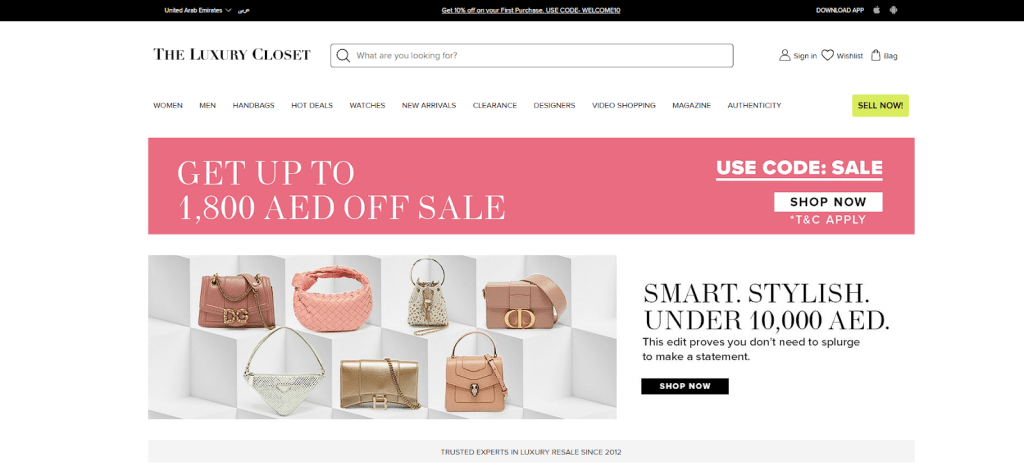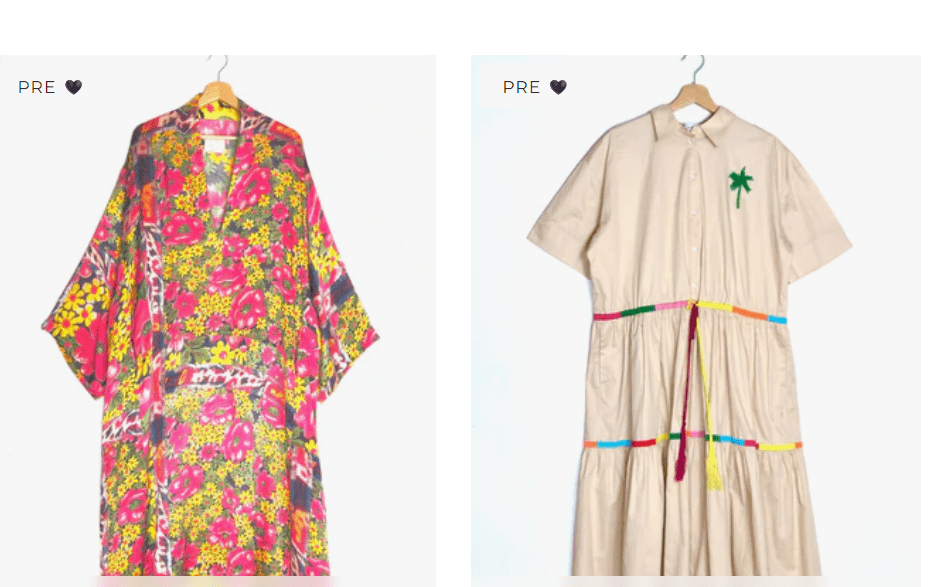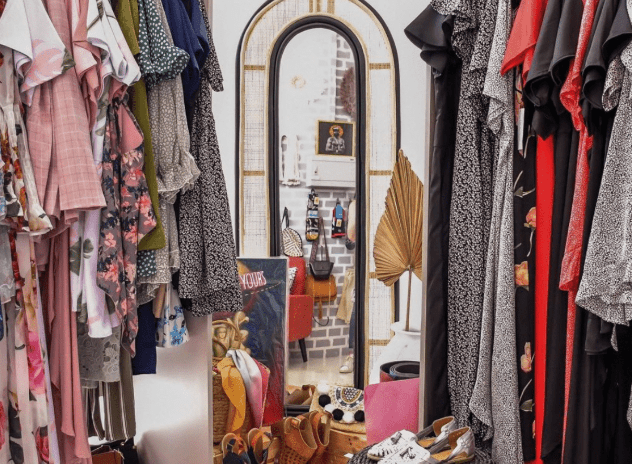By Omar Gouda
Across the Arab world, fashion has traditionally signaled luxury, trend-driven excess, and status-led consumption. But a quiet transformation is underway. Sustainability is emerging as fashion’s new currency, driven by a surge of regional tech startups championing circular models in which items are reused, rented, or resold rather than discarded. Luxury resale platforms are particularly gaining traction, offering a culturally resonant gateway into secondhand fashion in markets that once resisted it.
The Resale Pivot
Resale is a cornerstone of the circular fashion economy, prolonging the lifecycle of high-value garments and accessories. As textile waste surges across global markets, these platforms offer a pragmatic counter to fast fashion’s environmental toll while nudging consumers toward more conscious habits.
In the MENA context, resale is finding fertile ground because consumers already view fashion as an asset, and many now see resale as a way to recirculate value rather than accept loss.

The Luxury Closet: Redefining Secondhand Luxury in the Gulf
Founded in Dubai in 2012, The Luxury Closet has become one of the Middle East’s leading resale platforms, specializing in authenticated pre-owned fashion from designer clothing and handbags to watches and accessories. Operating on a C2B2C model, it streamlines the resale process: sellers consign items, and the platform manages everything from photography and authentication to global listing and distribution.

The Luxury Closet offers installment plans, click-and-collect services, and personal delivery. Each month, it brings over 3k unique items online from global sellers, with a combined value exceeding $1.5 million.
The Luxury Closet is helping push resale beyond niche circles. In 2023, it joined forces with Farfetch’s Second Life to introduce trade-in options and expand its footprint across the Gulf.
Elevating Resale Through Curation
Alongside tech-driven resale platforms, boutique concepts are quietly reshaping the landscape. So Chic, launched in 2014 by Alex Bouvy, has since evolved into La Suite—a hybrid showroom-boutique in Dubai that pairs curated preloved designer pieces with ethical fashion labels. The result is a space where sustainability aligns seamlessly with style; where resale isn’t a concession, but a curated choice.

La Suite takes curation seriously. Only pieces from recent seasons and in flawless condition make the cut—tailored for buyers who care as much about trend relevance as they do about quality.
Sellers can pocket up to 60% of the resale value—but the real appeal goes beyond the payout. This isn’t about chasing discounts; it’s about embracing a curated, conscious way of dressing.
Circular Design: Aya and On-Demand Production
While many startups focus on post-consumer resale, others are tackling fashion waste at the source through sustainable design and demand-driven production. One standout is Saudi Arabia’s Aya, which is reimagining how garments are made before they ever reach the rack.
Aya, launched in 2024 by Munira Al Kadi and Abdulrahman Al Ammar, recently secured $1.6 million in seed funding. The platform brings together modest fashion, especially abayas and similar styles, and uses real-time trend data to help local manufacturers produce only what shoppers actually want. It’s a smarter, leaner approach that cuts waste before it starts.
This “produce-to-demand” model helps cut overproduction, minimize inventory waste, and ease challenges in traditional fashion. Aya’s approach is to simplify the modest fashion space by offering one central trend-discovery platform that connects directly with local manufacturing.
Behind the Scenes
Circular fashion is gaining ground in MENA, propelled by a mix of supportive forces. Government sustainability agendas, like the UAE’s circular economy roadmap and Saudi Arabia’s climate initiatives, are setting the tone. Regional retailers are facing growing ESG pressure, while Gen Z consumers are driving a cultural shift toward more conscious and responsible fashion choices.
Investment is tracking the momentum. For instance, Best Kept Shared (BKS), a UAE-based peer-to-peer luxury rental and resale marketplace, acquired BAZAARA in 2024 to merge resale networks and expand circular access.
With consumer demand tilting toward responsibility and capital pouring into sustainable tech, the question isn’t whether circular fashion will take root in the Arab world—it’s how fast. The real winners will be those who make resale, rental, and on-demand production feel seamless, aspirational, and second nature.



